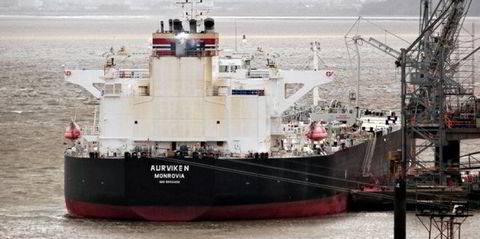Marine insurance premium income remained “stable” in 2019 but the downturn in trade volumes is set to send income plummeting this year at a time when the shipping industry’s risk profile is worsening.
Astrid Seltmann, vice chair of the International Union of Marine Insurance (IUMI)'s facts and figures committee, painted the bleak picture at the insurance group's virtual Stockholm annual general meeting this week.
The analysis showed total marine insurance premium in 2019 of $28.7bn, down 0.9% on the previous year.
Cargo insurance accounted for the largest share of premium income at $16.5bn. Hull insurance contributed $6.9bn.
One positive development is that the downward trend in hull insurance appears to have ended with premium income increasing by 0.2% on 2018 levels.
However, the increase in hull premiums is still not keeping pace with the growth in the size of the world fleet. “The downward trend in hull premiums has stopped, but it still does not match the increase in the size of the fleet,” Seltmann said.
But the real concern is that marine insurers are set to be hit by a massive drop in cargo income premium this year.
Cargo premium accounts for close to 60% of total marine insurance income. The impact of the coronavirus pandemic means that trade volumes could experience a decline anywhere between 13% and 32%, according to estimates.
Around 1bn tonnes of seaborne cargo volumes is forecast to be lost as a result of the pandemic and with it the same amount of cargo insurance premium.
The drop in income comes as there are some concerns over the shipping industry’s risk profile brought on by the pandemic. These include safety issues related to the crew change crisis and the accumulation of high-value cruiseships laid up in storm-prone regions.
Lack of investment in newbuildings is also turning out to be a safety issue.
Facts and figures committee chairman Philip Graham pointed out that the average age of the world fleet continues to rise and, for oceangoing vessels, now stands at 14.3 years and 27.3 years for smaller coastal vessels.
“We have an ageing fleet,” he said. “There is a consistent correlation between age and loss.”
He pointed out that loss levels remain extremely low during the pandemic but he is concerned about a return to higher loss levels when trade is once again normalised.
“Are we living in a false dawn, when trade returns to normal will we return to more normalised losses?” he questioned.
IUMI’s own cargo loss database shows loss ratios have been improving. But the occurrence of fires, explosions and natural catastrophes, all of which are the major causes of cargo losses, remain high.






